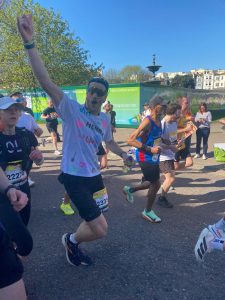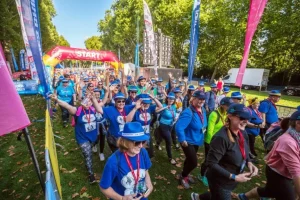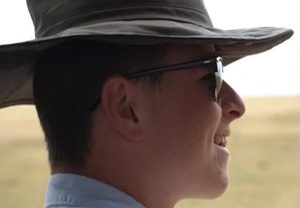A visit to The Magpie Project, working with migrant and asylum-seeking families with pre-school children in Newham, 8 May 2024 by Kate Richardson, ALMT Grants Officer
It’s 10.15am on a sunny Wednesday morning in Newham, East London and the Magpie Project is already welcoming mums and pre-school children at their weekly Stay and Play session.
During the session from 10am – 2pm, over 60 families will arrive (I’m told this is a ‘quiet day’ – they can receive over 90). Space is tight indoors and yet there are zones for sensory play, arts and crafts (today we’re making a tree with paints, twigs and tissue and labelling it with the name for tree in the children’s languages), food and drink, reiki relaxation, free nappies and wipes and mats for dance and movement. Fortunately, the lovely weather means families can spill out into the leafy playground and enjoy the swings and sandpit too.
Families awaiting decisions from the Home Office on their immigration status frequently live in temporary and insecure emergency accommodation provided by the local council. Often this is a low-grade hotel room, a hostel or house of multiple occupancy where the families share space and access to kitchens and bathrooms. Some families resort to sofa surfing or staying with friends. Many experience the stress of being uprooted at extremely short notice and moved to a new area, possibly miles away and losing the few connections they have forged. In many cases, these families are already traumatised from experiences in their past and their journey to the UK.
Young children’s social, emotional and physical development is affected by poor quality accommodation. There may be insufficient space at home to move and play, and hours strapped in buggies and highchairs while their mums attend appointments, queue to use shared kitchens, or simply walk the streets because ‘home’ is not a nice place to be. This often leads to delayed rolling, crawling, walking, poor balance, coordination and motor skills.
The ALMT has funded the project’s dance and movement therapist, Louise Klarnett, who specialises in working with people facing challenging life circumstances including trauma, economic deprivation, health issues. Each week, she works with Magpie ‘minis’ to build their strength and coordination through dance, movement, props, physical touch and expression.
It was fascinating to watch Louise’s sensitive and soothing interactions with the small children. Sometimes brief and light-touch – a smile or stroke – or longer and more involved – mirroring, stretching, swaying or supporting physical contact with mums and siblings. The fluidity and expressiveness of Louise’s approaches both relaxed and fascinated the children. Wiggling toes were copied, fists unclenched, and eyes opened wide in recognition and wonder.
I spoke to Louise during a break in the session and she explained how her training as a craniosacral therapist and dancer are closely entwined in enabling her to support children who are sometimes rigid, ‘frozen’, fearful and compromised in their range of movement and expression. She also touched upon Polyvagal theory and the role of the nervous system in emotion regulation, social connection and fear response.
Louise’s expertise and her subtle but impactful interactions brought joy and release to the children and encouraged familial bonds. These will be invaluable in building the resilience required to seek a sense of home and safety, away from the trauma of the past.



